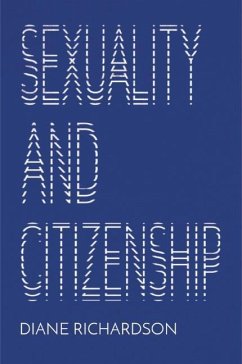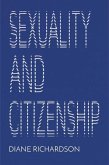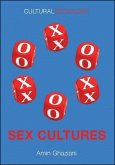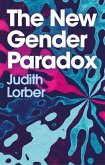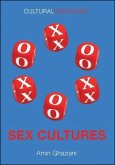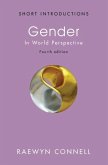Sexual citizenship has become a key concept in the social sciences. It describes the rights and responsibilities of citizens in sexual and intimate life, including debates over equal marriage and women's human rights, as well as shaping thinking about citizenship more generally. But what does it mean in a continually changing political landscape of gender and sexuality?
In this timely intervention, Diane Richardson examines the normative underpinnings and varied critiques of sexual citizenship, asking what they mean for its future conceptual and empirical development, as well as for political activism. Clearly written, the book shows how the field of sexuality and citizenship connects to a range of important areas of debate including understandings of nationalism, identity, neoliberalism, equality, governmentality, individualization, colonialism, human rights, globalization and economic justice.
Ultimately this book calls for a critical rethink of sexual citizenship. Illustrating her argument with examples drawn from across the globe, Richardson contends that this is essential if scholars want to understand the sexual politics that made the field of sexuality and citizenship studies what it is today, and to enable future analyses of the sexual inequalities that continue to mark the global order.
Hinweis: Dieser Artikel kann nur an eine deutsche Lieferadresse ausgeliefert werden.
In this timely intervention, Diane Richardson examines the normative underpinnings and varied critiques of sexual citizenship, asking what they mean for its future conceptual and empirical development, as well as for political activism. Clearly written, the book shows how the field of sexuality and citizenship connects to a range of important areas of debate including understandings of nationalism, identity, neoliberalism, equality, governmentality, individualization, colonialism, human rights, globalization and economic justice.
Ultimately this book calls for a critical rethink of sexual citizenship. Illustrating her argument with examples drawn from across the globe, Richardson contends that this is essential if scholars want to understand the sexual politics that made the field of sexuality and citizenship studies what it is today, and to enable future analyses of the sexual inequalities that continue to mark the global order.
Hinweis: Dieser Artikel kann nur an eine deutsche Lieferadresse ausgeliefert werden.
"Diane Richardson has long had a reputation for acute sensitivity to the emergent issues in our complex sexual world. In this comprehensive but compelling book she tackles the central but contested concept of sexual citizenship. In Richardson's steady hands this becomes a lens to explore a range of critical ideas, analyses and experiences, from subjectivities to belongings, sexual rights to neoliberalism, assimilation to recognition, the global to the local. The result is never less than illuminating and challenging, an invaluable guide to our perplexities."
Jeffrey Weeks, author of What is Sexual History?
"Drawing literature from geography, gender studies, sociology and political science, Richardson challenges us to think in an interdisciplinary way about the impact of structural differences and marginalizations. As the leading scholar in this field, Diane Richardson offers an insightful engagement with the concept, and political outcomes, of sexual citizenship which is undoubtedly a must read for any contemporary student of the social sciences."
Angelia Wilson, University of Manchester
Jeffrey Weeks, author of What is Sexual History?
"Drawing literature from geography, gender studies, sociology and political science, Richardson challenges us to think in an interdisciplinary way about the impact of structural differences and marginalizations. As the leading scholar in this field, Diane Richardson offers an insightful engagement with the concept, and political outcomes, of sexual citizenship which is undoubtedly a must read for any contemporary student of the social sciences."
Angelia Wilson, University of Manchester

